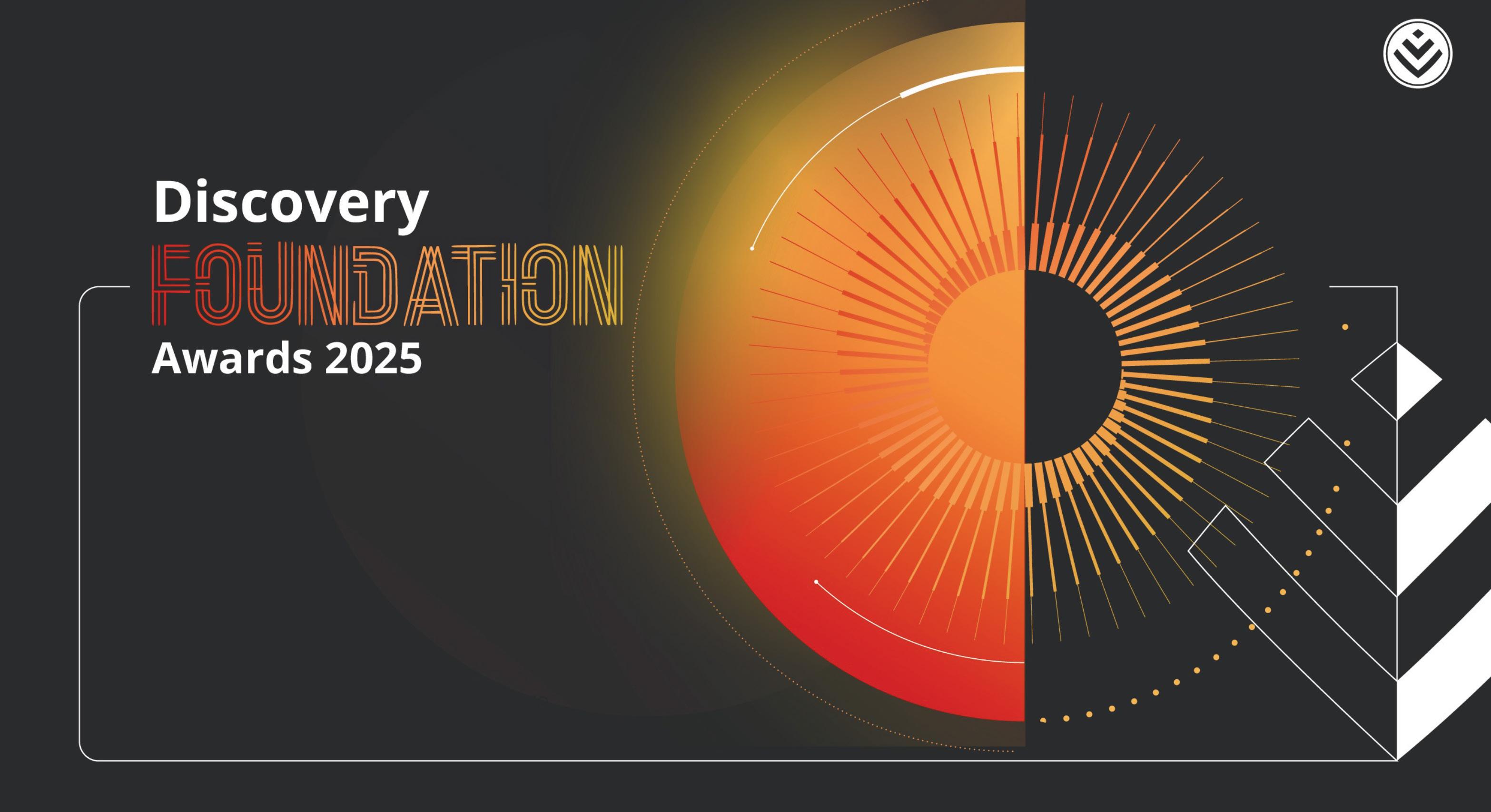

Supporting academic excellence, leadership and innovation in SA healthcare
The Discovery Foundation, an independent trust as part of Discovery’s BEE transaction to invest in healthcare training, announced the recipients of its 2025 Awards at a ceremony in Sandton. These annual grants support public sector doctors, specialists, researchers and institutions to enable continued progress, quality and accessibility of healthcare in SA.
By Nicky Belseck, medical journalist
THIS YEAR, Discovery Foundation celebrated award recipients under the theme ‘Light the path’, recognising innovative approaches to care and medical research that touch people at every stage of life.
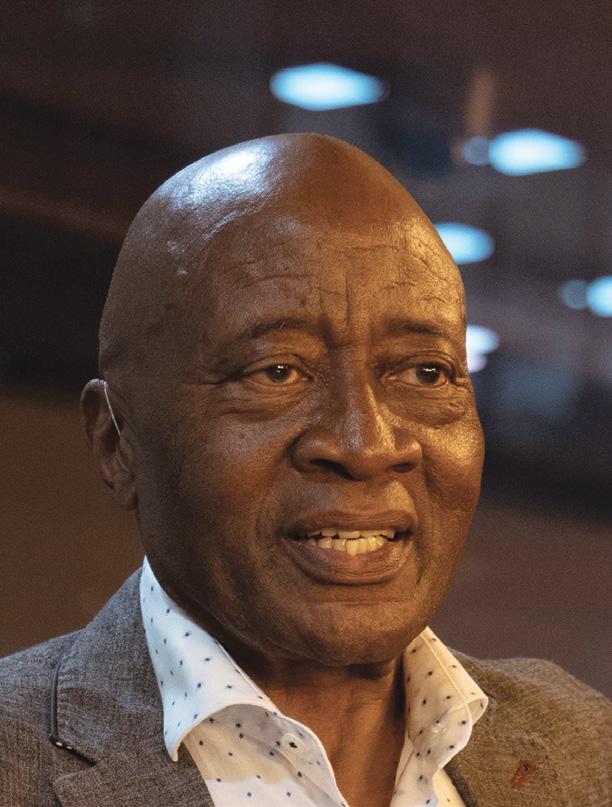
A VISION FOR LEADERSHIP AND TRANSFORMATION
Dr Vincent Maphai, chairperson of the Discovery Foundation, reflected on the Foundation’s long-standing commitment, saying, “The Discovery Foundation continues to invest in the next generation of medical leaders to help strengthen SA’s healthcare system. The Foundation was established with a powerful mission
to nurture healthcare talent, support our healthcare system, and ensure that every South African has access to quality medical care. Looking at the reach of the Discovery Foundation to date, the impact of that vision is visible in every province and across every medical discipline, from family medicine and radiology to paediatrics and surgery.”
Dr Maphai added that the work of the Discovery Foundation is rooted in a belief that transformation in healthcare goes beyond numbers. “It is about enabling a generation of professionals who carry with them skill, leadership and an understanding of service and innovation grounded in human dignity.” Since its inception in 2006, the Discovery Foundation has helped fund up to 10% of SA’s training posts, and with 584 grants to date, investing over R331 million in grants. These grants support doctors at various career stages, from postgraduate studies and sub-specialist training to rural service and training initiatives for the long-term sustainability of the healthcare system. Dr Maphai highlighted that the 2025 Award recipients represent more than individual success stories. “Each recipient embodies our shared vision for a healthier, more equitable healthcare system. Their achievements and ongoing work remind us that SA’s healthcare story is one of resilience and progress.”
Over the years, Discovery Foundation grants have supported doctors specialising in anaesthesiology, obstetrics and
gynaecology, oncology, psychiatry, paediatrics, family medicine, radiology, and more. Award recipients have contributed to research and service delivery in every province, helping to strengthen healthcare delivery, specifically in rural and underserved areas.
ADVANCING MEDICAL INNOVATION AND HEALTH PRIORITIES
The Discovery Foundation’s ongoing partnerships with universities, teaching hospitals, and research institutions ensure that grants not only support individual excellence but also strengthen systemic capacity across the country.
Andronica Mabuya, Discovery’s head of CSI, emphasises that sustainable healthcare requires long-term collaboration. “We believe access to quality healthcare should not depend on geography or circumstance. The Discovery Foundation’s mission is to bridge that gap and to empower doctors and institutions serving in rural areas. The impact of their research, training, and service delivery is felt across communities, helping to make healthcare more equitable, resilient, and responsive.”
Each recipient of a Discovery Foundation Award is required to serve in the public sector for at least two years following completion of their studies or training, yet more than 60% of alumni remain in public service beyond this period, which is a testament to their commitment
to social impact. The 2025 Award recipients represent medical professionals at the forefront of digitisation, and clinical research. Their work reflects a global shift towards personalised, and value-driven healthcare, trends that align with South Africa’s health priorities.
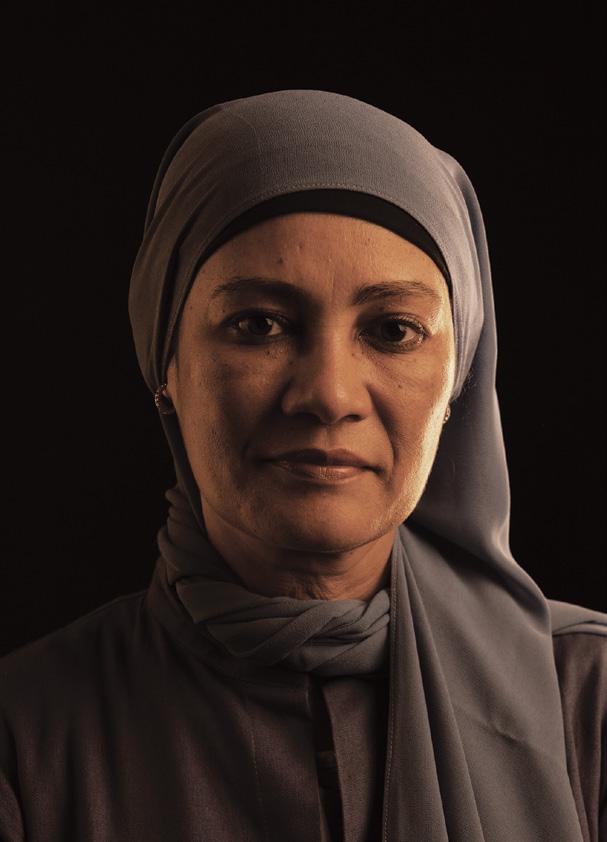
ACADEMIC FELLOWSHIP AWARD
Dr Marwah Jenneker, Obstetrics and Gynaecology
Determined to improve maternal and foetal outcomes in SA and globally, Dr Marwah Jenneker is a specialist obstetrician and gynaecologist, working towards a subspecialty in maternal foetal medicine
ADVERTORIAL
and pursuing her PhD at the University of KwaZulu-Natal.
Based at Inkosi Albert Luthuli Central Hospital in Durban, Dr Jenneker’s greatest passion is the lives of women and their babies. “I am particularly interested in women with high-risk medical disorders that are trying to achieve a successful pregnancy and am amazed by their fervent maternal instinct and bravery to defy all odds to become mothers. I can only match their bravery and do all I can to assist them.”
Dr Jenneker explained that, “Women in my area are affected by diseases such as rheumatic heart disease. A disease that still affects marginalised populations with effects on long-term maternal health. An important outcome of this disease, is the replacement of heart valves with mechanical prosthesis. These women enter their reproductive lives on lifelong warfarin therapy, a medicine that is teratogenic (can cause disabilities or birth defects) to the foetus."
It was this challenge that inspired her to apply for the Discovery Foundation Award. “My main aim was to look at a heparinbased medication called enoxaparin. My study tests its performance in ensuring maternal safety. This medication cannot cross the placenta, and, therefore, is completely safe for the foetus. It has already shown to improve foetal outcomes. The main aim is to prove non-inferiority of enoxaparin to warfarin for maternal safety.”
Her research is a stepping stone for future research. “I plan to take this research into a prospective study, one that can be expanded to more centres. I also hope to create a digital system where we can track these women throughout SA. We can look at more women and compare warfarin and enoxaparin for maternal safety, in particular thromboembolic complications like stuck valves and strokes.”
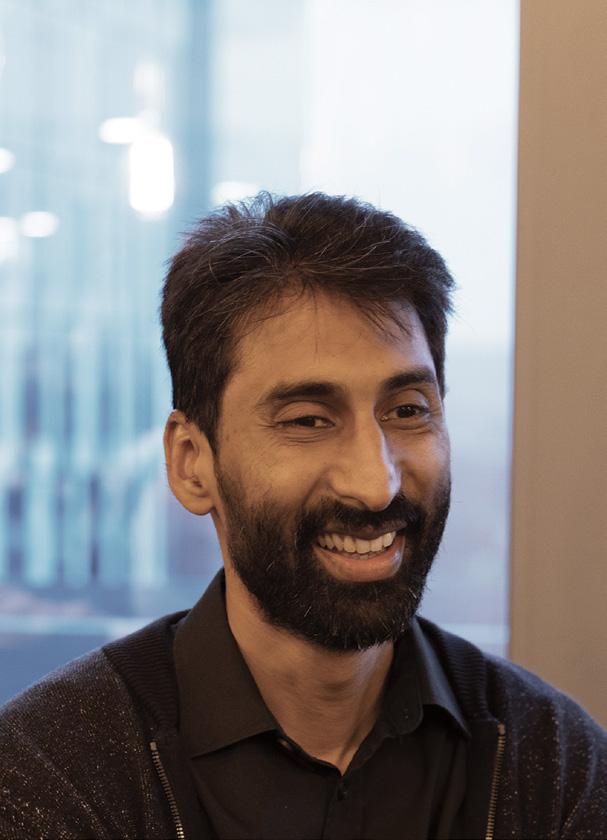
Dr Sayed Shakeel Kader, General Surgery
A colorectal surgeon at Dr Pixley Ka Isaka Seme Memorial Hospital in Durban, Dr Shakeel Kader is based at the Department of Surgery, University of KwaZulu-Natal. “My clinical and academic focus is colorectal surgery, with a particular research emphasis on the genetics and tumour microenvironment of colorectal cancer, especially in young patients in SA.
I am also involved in health-systems research aimed at improving earlier detection of colorectal cancer through community-aligned diagnostic pathways.”
Expressing concerns around SA’s rising burden of young-onset colorectal cancer, often diagnosed at an advanced stage, Dr Kader said: “Working with patients and families who navigate this disease at a formative stage of life inspires my work. I am driven by the belief that equitable access to early diagnosis, precision oncology, and compassionate surgical care can change both survival outcomes and lived experience. Mentorship from colleagues and the resilience of patients continue to reinforce this purpose.
“Many patients present for treatment late due to limited public awareness, diagnostic delays, socio-economic barriers, and gaps in access to specialised services, Dr Kader explained. “There are few national pathways for early detection, and genomic data from African patients is still underrepresented in global research. This limits our ability to provide personalised care. Resource constraints in the public sector require innovation and partnership to deliver high-quality surgical and oncological care.”
Dr Kader applied for the Discovery Foundation Award to support the development of locally relevant colorectal cancer genomics research and build capacity for earlier recognition of at-risk patients. “The award provides critical resources for laboratory analyses, data infrastructure, and collaborative partnerships. It enables us to generate South African-specific evidence that can shape clinical pathways and improve outcomes, particularly for young patients,” he said.
“My goal is to contribute to a future where colorectal cancer is diagnosed earlier, managed more precisely, and understood in the context of the African genomic landscape. I hope our research will lead to risk-stratified screening approaches, better patient counselling, targeted therapies, and improved survival. Ultimately, the work aims to reduce preventable morbidity and mortality and strengthen patient-centred cancer care across the public sector.”
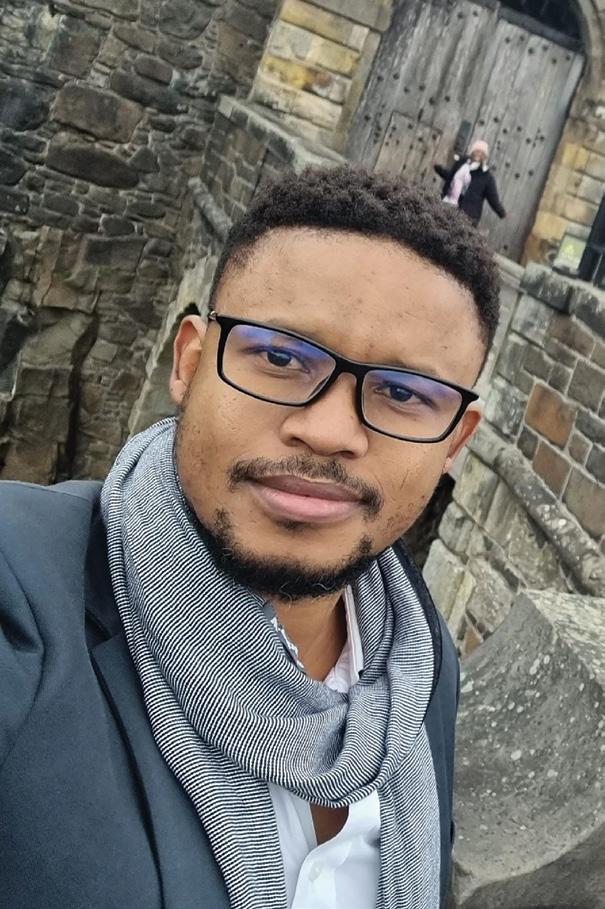
paediatric surgeon whose research focuses on appendicitis within the paediatric population of the Eastern Cape. “Making a difference in a child’s life motivates and inspires me to give my absolute best.”
In his day-to-day work, Dr Machaea faces challenges on two fronts: institutional and patient. “We strive to give the best care to our patients, but due to budget constraints, we find ourselves lacking in the required equipment to do so.” With patients, he highlights concerns around how poor insight into their conditions, which could be fostered by limited access to health information and care, can be challenging.
“I applied for the Discovery Foundation funding to assist in my research, which will enable me to get research assistants and statisticians. Without the funds, being able to still have a full-time job and perform research would be extremely challenging.”
As a result of his work, Dr Machaea hopes to see an improvement in early identification of appendicitis, thereby limiting the morbidity derived from delayed presentation.
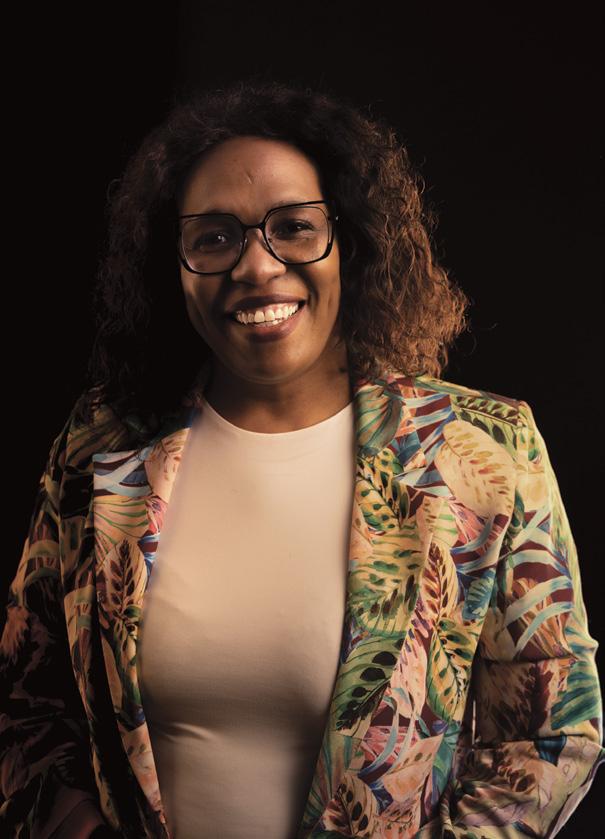
RURAL AND UNDERSERVED AREASDISTINGUISHED VISITOR
Dr Maria Mmaphefo Maluleka, Family Medicine
Dr Mmaphefo Maluleka is currently based at Jubilee District Hospital in Hammanskraal, north of Tshwane, where she serves as a third year family medicine registrar under Sefako Makgatho Health Sciences University (SMU).
“My area of specialisation is family medicine and primary healthcare, focusing on the six key roles of the family physician: care provider, clinical trainer and supervisor, consultant, capacity builder, leader and champion of clinical governance and leader and champion of community-oriented primary care (COPC).”
Her research focus is on auditing the management and outcomes of ectopic pregnancy at a district hospital in Gauteng. “It reflects the integration of these roles, particularly clinical governance, capacity building, and COPC.”
Dr Maluleka is inspired by the transformative potential of family medicine to strengthen health systems from the ground up, bringing meaningful change to families and communities through health education, health promotion, and all levels of
prevention (primordial, primary, secondary, and tertiary), as well as supporting the reintegration of patients into their communities after long illnesses.
“Working at the district level allows me to witness first-hand how integrated, compassionate, and evidence-based care can save lives and restore dignity, particularly among vulnerable groups such as women, children, the elderly, mentally ill, and persons with disabilities.
“The resilience of patients and the dedication of healthcare teams continually motivate me to bridge gaps in care through research, teaching, and leadership, ensuring that every patient encounter contributes to a stronger, more equitable health system,” Dr Maluleka explained. “I applied for the Discovery Foundation Award to strengthen my research capacity and contribute evidence that can inform policy and clinical practice in maternal health. The award provided a vital support for data collection, data analysis, stationery, language editing, transport, and dissemination of findings,” said Dr Maluleka. “I have already had the opportunity to present the preliminary findings of this research at the 2025 Family Medicine Conference and the Tshwane Research Conference, where it was well received for its relevance to strengthening maternal healthcare in district hospitals.”
Looking to the future, Dr Maluleka hopes her work will lead to women education and awareness that will influence healthy choices about safe sexual practices and early health seeking behaviour. “Improved awareness and early detection by healthcare workers in primary healthcare facilities will improve management of ectopic pregnancies, strengthen referral pathways, and standardise protocols across district hospitals. In the long term, I envision a healthcare system where data-driven audits routinely inform quality improvement initiatives, empowering clinicians, better fertility outcomes for future mothers and reducing preventable maternal deaths.
Ultimately, this research aims to create a ripple effect – enhancing both patient safety and healthcare system accountability across SA,” she concluded.
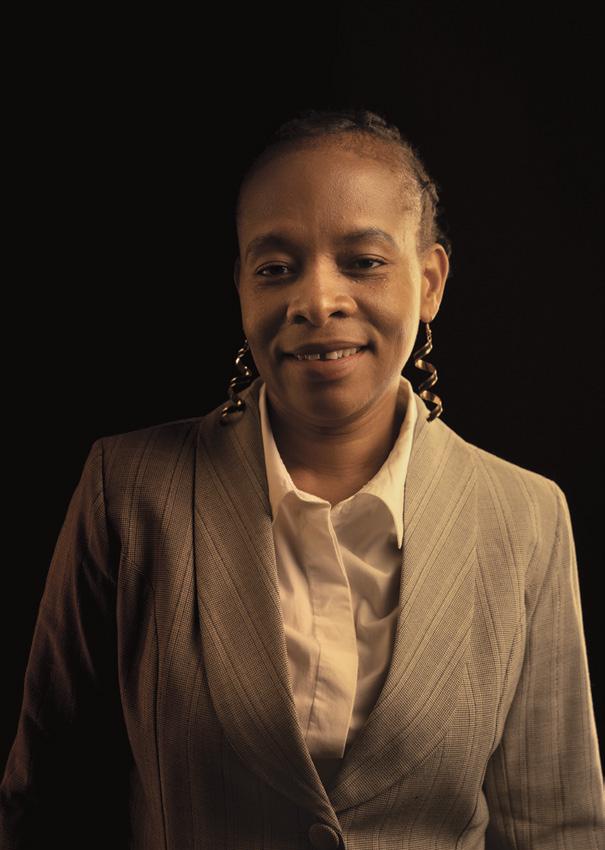
Based at Sefako Makgatho Health Sciences University as a registrar, Dr
Dr Sello Machaea, Paediatric Surgery
Based in East London, Dr Sello Machaea is a
Dr Mikateko Petunia Maswanganyi, Family Medicine
Mikateko
Petunia Maswanganyi works at Odi District Hospital in Pretoria, rotating in different departments for a variety of exposure. Inspired to make a difference in patients' lives, Dr Maswanganyi highlights the urgent need for more healthcare workers finding the staff shortage in relation to workload and patients to be particularly challenging.
Dr Maswanganyi’s research is on factors associated with blood pressure control among hypertensive patients attending at a district hospital in Tshwane. “I applied for the Discovery Foundation Award because it is quite a financially demanding journey, as several stakeholders come to play during a research project. I hope to see myself more capacitated in managing patients post my research project, as it will add more knowledge to my daily practice,” she said.
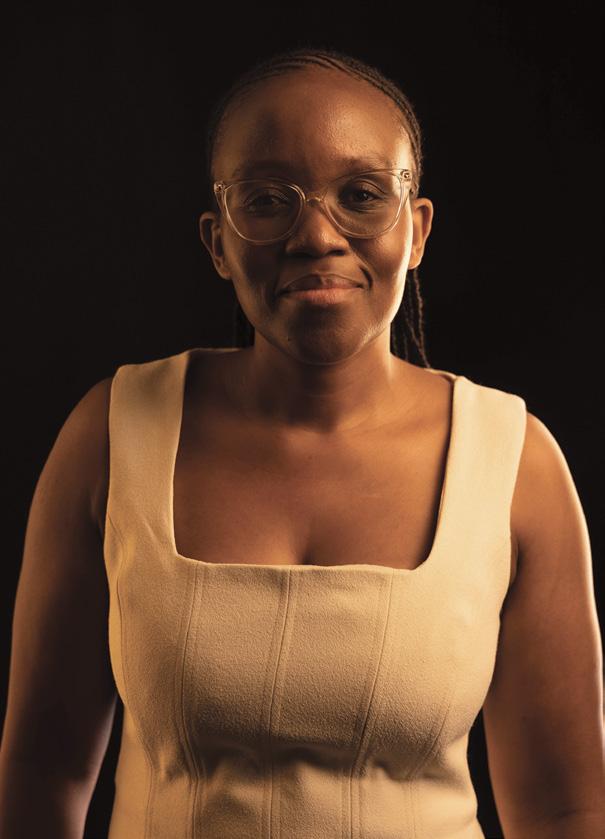
Dr Vuyo Nogela, Family Medicine
Doing her training in paediatric surgery under Walter Sisulu University, Dr Vuyo Nogela works as a registrar at Frere and Cecilia Makiwane Hospitals in East London. “My current research focuses on understanding the scope and patterns of operative paediatric surgical disease in the Eastern Cape, with the goal of identifying gaps in access to surgical care and improving service delivery for children in the region.”
Dr Nogela is inspired by the resilience of children and the transformative impact that timely surgical intervention can have on their lives. “Working in a resource-limited environment has deepened my appreciation for teamwork, innovation and advocacy – especially when it comes to improving access to specialised surgical care for children in underserved areas.”
The biggest challenges Dr Nogela sees include shortage of specialised paediatric surgeons, and delayed referral sometimes due to limited diagnostic capacity or lack of trained personnel. “Balancing clinical work, academic training, and research is also a continuous challenge,” she explained.
Dr Nogela credits her consultant, Dr Sello Machaea, for encouraging her to apply to the Discovery Foundation and is excited that the award will help highlight the paediatric surgical burden in the Eastern Cape and contribute to data-driven advocacy for better resource allocation and training. “The funding allows me to collect and analyse data across multiple hospitals, which would otherwise not be possible.
I hope that this work will inform strategies to strengthen paediatric surgical systems. Ultimately, I envision a healthcare system where every child in the Eastern Cape can access timely, safe and equitable surgical care.”
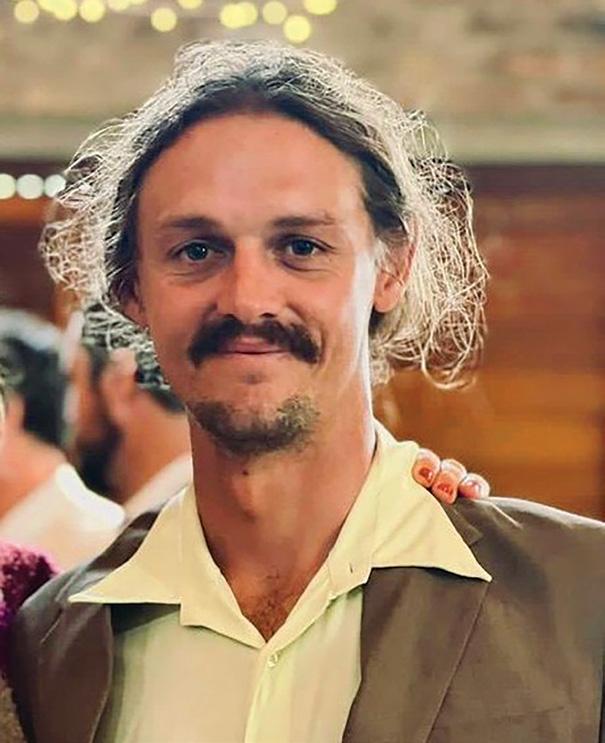
Dr Gabriel Steyn Botha, Family Medicine
A family medicine registrar based at Madwaleni District Hospital, Dr Gabriel Steyn Botha’s research through Walter Sisulu University is on the prevalence and predictors of traditional health practitioner consultations for caregivers of children prior to admission to a rural District Hospital in the Eastern Cape.
Dr Botha credits his wife as being the greatest influence in his life to date. “She came into my life and completely turned it upside down in the best possible way. She inspires me to be true to myself every day and still amazes me with how she backs me, no matter what.”
Currently pursuing an MMed, it can be challenging balancing research, clinical duties, and family life. Dr Botha credits his mentors at Madwaleni District Hospital as being a huge support. “I had a few family medicine juggernauts ahead of me, Drs Andrew Miller, JD Lotz, and Andy Wilkins, offering invaluable advice on prioritising what matters. Their guidance helped me find a rhythm that works, even in times of chaos."
The chance to make a real, tangible difference in a community that genuinely needs it, yet is so often overlooked, is what drew Dr Botha to the public sector. “There’s something profoundly grounding about being where the impact of your work is immediate and visible, and where you can walk alongside people in ways that really matter.” Receiving the Discovery Foundation Award has given Dr Botha the freedom to pursue high-quality research, covering costs for services and assistants that he wouldn’t have been able to afford otherwise. “Ultimately, I hope to publish my findings in a respected journal and use the insights to impact similar communities, improving rural healthcare beyond just my own hospital,"
Dr Botha’s goal now is to produce solid, high-quality evidence that can guide policy around reducing the under-five mortality rates, in line with the sustainable development goals. "Whether the findings support the use of traditional health practitioners or not, I hope this research
gives local leaders a clear picture of what’s really happening in the Mbhashe subdistrict, so decisions can be made that truly benefit the community."
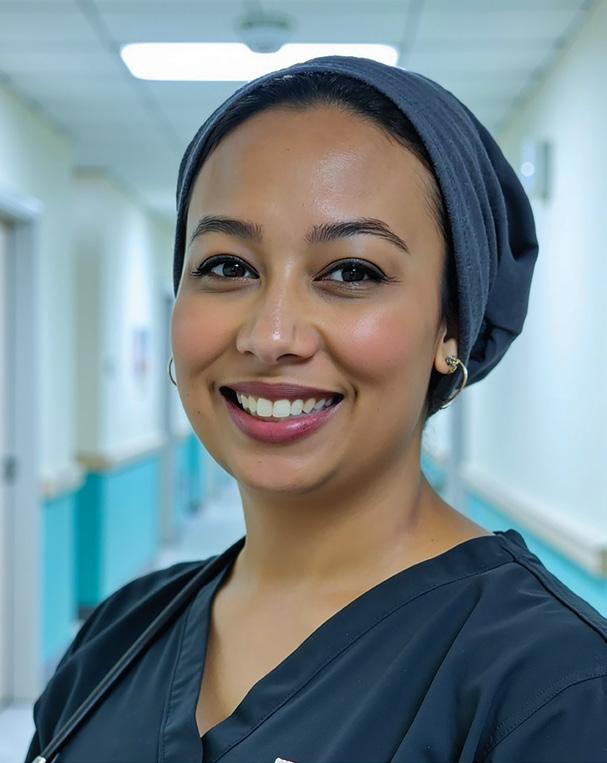
Dr Ateeqah Ismail, Family Medicine
Working as a family medicine registrar within the Western Cape Department of Health and Wellness, Dr Ateeqah Ismail was based at Eerste River Hospital in Cape Town. Because of the integrated nature of the family medicine programme, she also worked at Mfuleni Community Health Centre, Khayelitsha Day Hospital, Helderberg Hospital, and Tygerberg Hospital.
“I recently completed my registrar programme. Shortly after, my family and I immigrated to the United Arab Emirates, where my husband was offered a job opportunity. I am currently completing my research data analysis before exploring new professional opportunities.”
Dr Ismail specialised in family medicine, which focuses on providing holistic care to patients of all ages. “My clinical interests include women’s health, child health, and mental health. My MMed research, titled Exploring the burden and experiences of caregivers of mental health care users with substance abuse issues at Eerste River Hospital, Cape Town, focuses on the experiences of caregivers who support individuals living with both mental illness and substance abuse."
Deeply inspired by the resilience of patients and caregivers in our communities, Dr Ismail described being able to make a tangible difference in people’s lives through compassionate, evidence-based care as a privilege. “Working in the public health sector has given me the opportunity to engage with diverse communities and address some of the systemic barriers to quality healthcare.”
Dr Ismail highlights the lack of adequate mental health resources and support structures, especially for caregivers who are often overlooked despite their essential role in patient recovery, as a major challenge. “High patient loads, stigma, and the overlap of substance abuse with mental illness make care delivery particularly complex.
Mental illness is a major contributor to the burden of disease in SA. Despite this, many individuals do not receive treatment due to stigma, poor system integration, and substance use.
As the country has shifted toward community-based care, caregivers have
taken on greater responsibility, often without sufficient support or recognition. My study aims to highlight their challenges and promote the creation of structured, sustainable support systems for them,” she said.
“I applied for the Discovery Foundation Award to strengthen my research capacity and to give a voice to caregivers who are too often unseen within our mental health system. The award has provided me with the resources and platform to complete my study and to bring attention to this vital, yet underexplored, area of care. I hope my research contributes to a deeper understanding of the experiences and needs of caregivers, leading to interventions and support systems that improve both caregiver well-being and patient outcomes. In the long term, I believe this will foster a more holistic, compassionate, and sustainable approach to mental healthcare in SA."
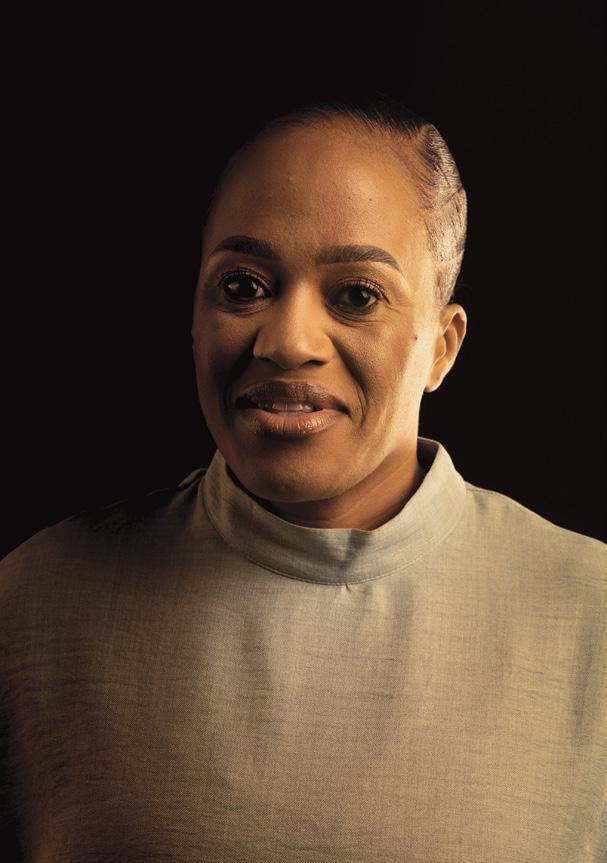
RURAL AND UNDERSERVED
AREASINSTITUTIONAL AWARD
Dr Riha Mukhinindi, Family Medicine
A family physician with a special interest in palliative medicine, Dr Riha Mukhinindi works at Lebowakgomo District Hospital in Limpopo. With a focus on cancer prevention and education, she is driven by the large number of patients she sees with very late presentations, often with cancers that could have been detected early, if symptoms were known. “Patients always say ‘I wish I knew’, or ‘I didn’t think it was that serious'," she said. In her day-to-day practice, Dr Mukhinindi faces several challenges including delays in diagnostics, limited resources leading to long waiting periods and public/private partnerships and NGOs hardly ever reaching rural areas. “Hence the need to equip community healthcare workers with knowledge and information to assist with early cancer detection,” she explained.
“I applied for the Discovery Foundation Award because I needed funds to train healthcare workers, especially community healthcare workers, on early cancer identification and care of patients diagnosed with life limiting conditions.”
Dr Mukhinindi conducts five-day training courses for clinical healthcare workers and three-day training for community healthcare workers. “The award assists
ADVERTORIAL
with training materials, certification, paying facilitators and catering.”
Dr Mukhinindi hopes the people she trains will be able to train others. “The potential impact would be great, ensuring improved quality of life for patients due to early diagnosis and possible cure, great patient satisfaction and job satisfaction for the healthcare workers when they see patients being cured.
The decreased hospital stays will mean the department of health can distribute the resources to more patients for other things, including education,” she shared enthusiastically.
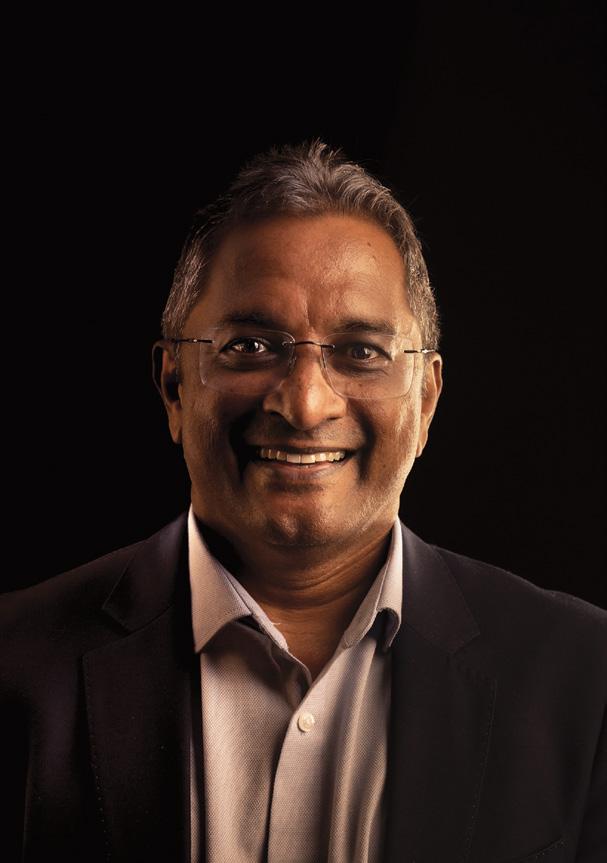
Prof Mergan Naidoo, Family Medicine
Based at the University of KwaZuluNatal (UKZN) and Wentworth Hospital in Durban, Professor Mergan Naidoo serves as Associate Professor and Head of Clinical Unit in Family Medicine. His work focuses on clinical service, postgraduate training, and research in family medicine, health professions education, and health system strengthening.
“My professional inspiration stems from a lifelong commitment to improving healthcare for underserved communities and ensuring that medical training equips doctors to meet real-world challenges.” Working in both academic and clinical settings enables Prof Naidoo to bridge education and service, translating learning into improved patient outcomes.
“The challenges in my field include resource limitations, staff shortages, and uneven supervision capacity at district hospitals. These issues often compromise both patient care and the quality of postgraduate learning. Addressing them requires innovation, collaboration, and systemic reform.”
Prof Naidoo applied for the Discovery Foundation Award to support the EPA4FMSA project, a national initiative implementing Entrustable Professional Activities (EPAs) to standardise and strengthen postgraduate Family Medicine training across nine SA universities. “The award has enabled us to embed workplace-based assessment and reflective learning through a national electronic portfolio, linking education directly to service delivery.
“Through this work, I hope to see a new generation of competent, compassionate family physicians leading strong, patient-
centred teams — improving clinical governance, reducing inequities, and transforming healthcare outcomes in SA’s district hospitals."
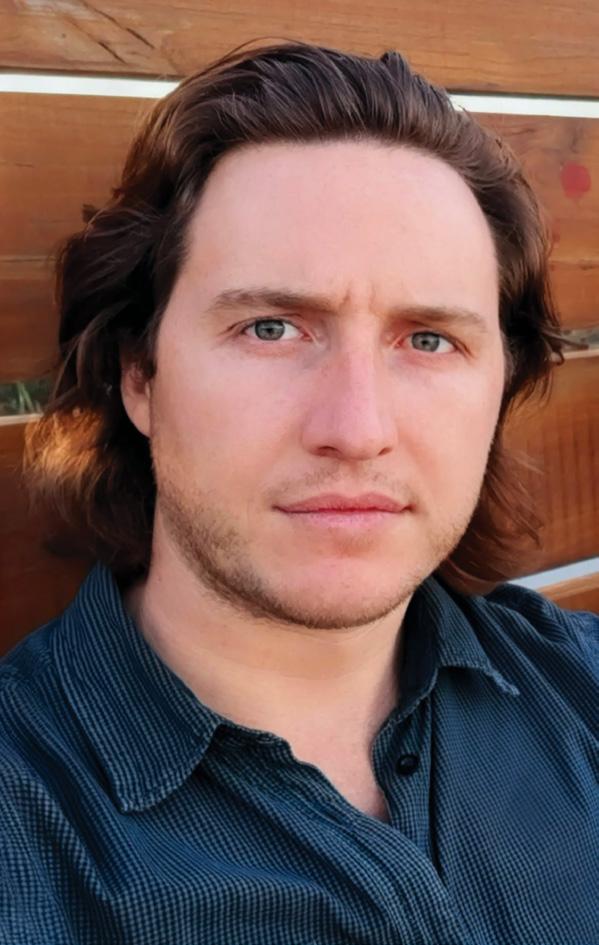
Dr James Henry Marais, Department of Medical Practice
Working for the Nelson Mandela University school of medicine, Dr Hennie Marais runs the third year module called clinical skills and reasoning. “This module focuses on preparing the medical students for their clinical years (working in hospital) by solidifying their knowledge and skills to aid their decision making in the framework of holistic care, when treating patients. I also facilitate the undergraduate training of bedside ultrasound, which means we are teaching the new generation of doctors to use ultrasound as an extension of their clinical examination. This allows them to make more informed decisions and practice safer medicine. It is a great resource especially in resource-limited areas like the Eastern Cape. Before the undergraduate programme, I got involved in the ultrasound course a colleague and friend of mine, Dr Dawie Schoeman, developed. This programme focuses on teaching these same ultrasound skills to doctors, nurses and paramedics all over the country."
Grateful to God for giving him so many opportunities to help fellow South Africans, Dr Marais said. “Medicine has such a rich history, and I find myself hanging on the lips of the doctors who came before us. Seeing the humility and passion with which they try to help people. This is evident in many great names from the past but also many of the doctors I have worked with, from medical education and surgery, to rural medicine."
Dr Marais applied for the Discovery Foundation Award because the Foundation's ethos seemed to align well with their desires for the rural community in Sarah Baartman District in the Eastern Cape. “Addressing resource constraints, supporting rural doctors, improving communication between hospitals and improving infrastructure. With this grant, we can host 20 doctors and nurses from the district, in our three-day ultrasound training programme. We are also able to purchase three butterfly ultrasound devices that are dedicated for use in the district hospitals that the university will
be involved with. This also allows our medical students to get further exposure of ultrasound in the rural setting.”
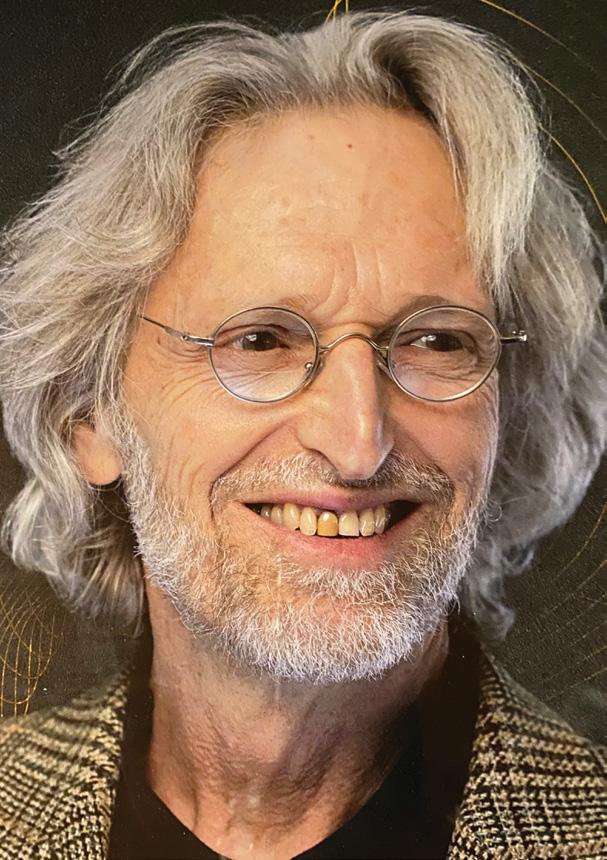
Dr Gert Marincowits, Family Medicine
Having worked in rural clinics and hospitals in Tzaneen for the past 34 years, Dr Gert Marincowits is currently responsible for the development of the discipline of family medicine in the province of Limpopo.
“While this includes palliative care as well as support to primary care and district hospitals all over the province, I’m based at Mankweng Hospital.”
Describing himself as an implementer of ideas, Dr Marincowits was concerned that very little was being done about palliative care (a sub-specialty of family medicine) in the province. “I embarked on a project with the funding support from Discovery Foundation (Institutional Rural Award) to roll out training and the establishment of teams throughout the province to see to palliative care provision."
Asked what inspires him, Dr Marincowits said: “There are so many people in need of caring and support. I focused a lot on training junior doctors and nurses in primary care. They are also my inspiration. To see how they take new ideas and implement it even better than I thought. I also have a lot of support from senior colleagues and top management in our province.”
Acknowledging that limited human resources is a worldwide problem, Dr Marincowits said: “I think the biggest problem in healthcare, is a severe scarcity of effective leadership at middle management level. We have excellent HODs and DDGs, but the people in middle management don’t always have the skills and approach to manage people.”
Dr Marincowits applied for the Discovery Foundation Award because he wanted to start a project to implement palliative care, which involved training and building capacity in Limpopo. “With the help of funding from the Discovery Foundation over the past three years, we’ve trained 470 health workers from 20 different hospitals in our province. The palliative care course we presented is the APCC (Association of Palliative Care Centres in SA) accredited five-day ‘Introduction to Palliative Care for Health Workers course’. The trainees were then mentored to form interdisciplinary palliative care teams at each of their
hospitals to encourage, train, and motivate their fellow health workers to use the palliative care approach for all patients who require it. It is a long way to go but we have made a good start.”
Looking to the future, Dr Marincowits hopes to see all health workers use the palliative care approach with all patients who need it, and that health workers will be more caring, kind, and compassionate towards their patients. “In palliative care communication, compassion and involving patients’ family in their care are crucial principles. We hope to establish a palliative care training unit at our university in Limpopo to ensure that this work will continue.”
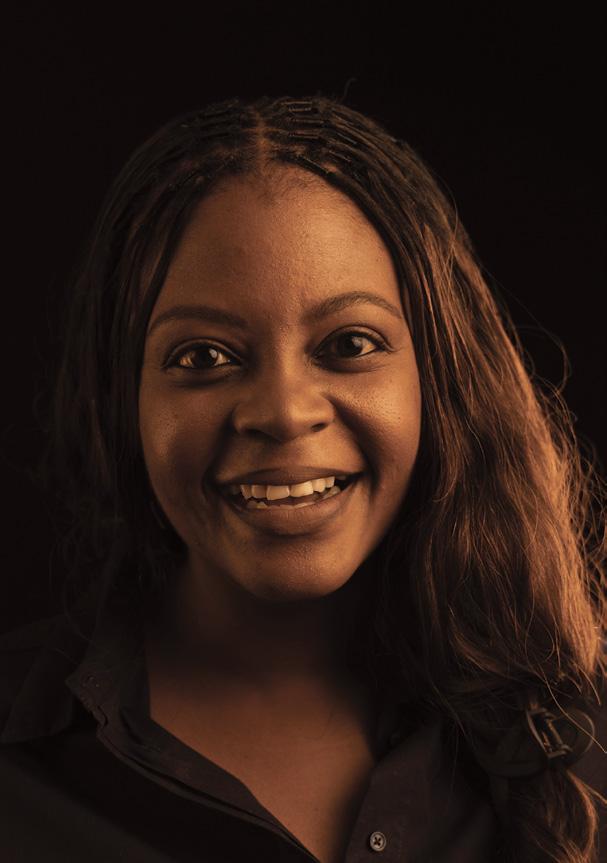
SUB-SPECIALIST AWARD
Dr Wendy Maimela, Paediatric Cardiology
Based at Chris Hani Baragwanath Academic Hospital, Dr Wendy Maimela is a fellow studying towards a certificate in paediatric cardiology. “Early in my career, I found myself intrigued by the tenacity of young children with various health and social problems. I was happiest working in the various paediatric departments and often found myself attached to children and their families whenever I was given the opportunity to be a part of the team looking after the child during their health centre visits or stays in the hospital.
Paediatrics called me out early in my career path during my undergraduate studies at the University of Cape Town. I discovered that my drive towards becoming a paediatrician and working towards improving medical outcomes, decreasing morbidity and mortality in the lives of children and their families with various health disorders, both acute and chronic, fuelled my joy in medicine.”
Dr Maimela explained that many of the challenges faced in the public sector are related to the funding and access to services for patients and their families.
“The socio-economic challenges also influence outcomes in our patient population significantly. Paediatric cardiology is a highly specialised field that requires collaboration with many other specialties in paediatrics,” she said.
“In SA there are currently limited government posts for sub-specialisation. The Discovery Foundation Award/grant

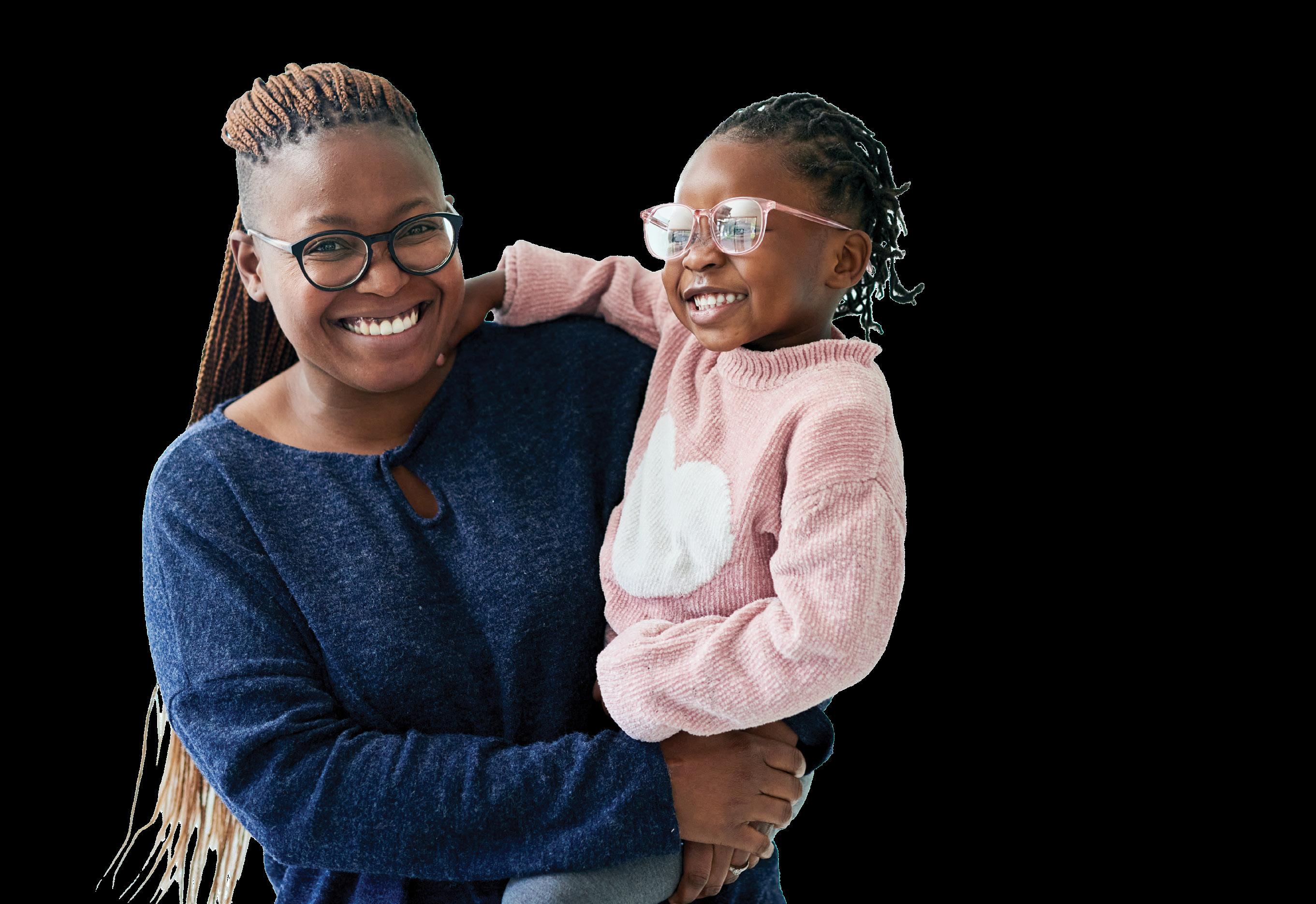
has assisted me in being able to access a training post. I am currently doing research on intra-cardiac masses that affect children’s hearts and hope to use the outcome of the study in influencing protocols for screening, identifying these masses, and the best therapeutic approaches that are safest for our patients and offer the best outcomes, while taking into consideration the cost that the management of the conditions come with,” Dr Maimela concluded.
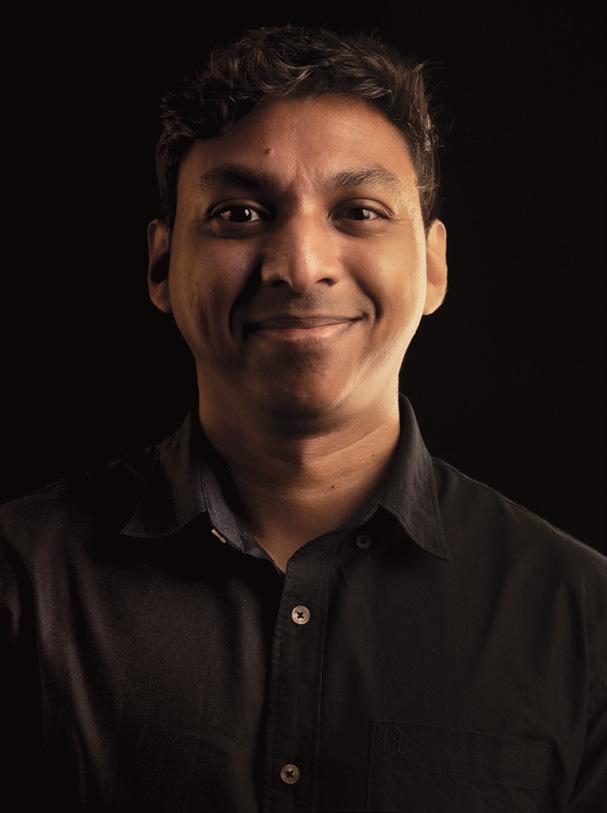
Dr Sivenderen Thaver, Colorectal Surgery
Based in Durban, Dr Sivenderen Thaver is a general surgeon working at Inkosi Albert Luthuli Central, and Dr Pixley Ka Isaka Seme Memorial Hospitals where, through the help of the Discovery Foundation Sub-specialist
Award he has begun his sub-specialist training in surgical gastroenterology, with a specialty of colorectal surgery.
“I draw inspiration from my seniors and colleagues, as well as from my patients. Seeing the level at which my seniors function and the tangible impact that they make in patients’ lives inspire me to aspire to their level of excellence.”
Dr Thaver describes his day-to-day challenges as not much different to many of the challenges we face in SA. “Lack of education and healthcare access for the majority directly translates to many patients presenting with advanced, complex cases that require excessive resources and specialist care, which are in itself lacking. For example, in my specialty, many patients present with advanced colorectal cancers that could have been prevented, if better screening and awareness campaigns were in effect,” he explained.
“I applied for the Discovery Foundation Sub-specialist Award as it will enable me to train in this field of lower GI/colorectal surgery, expand my knowledge, and assist in filling the gap that is arising from the increasing number of patients presenting with complex colorectal and lower GI pathology. It will assist to expand my knowledge in the field and inspire important and impactful research so that long-term changes can be made to affect healthcare for all, from the grassroot level to the most complex of cases." In the future, Dr Thaver hopes to see more access to specialised services such as minimally invasive surgery, specialised surgical services, and
implementation of policies that will assist in education and awareness of important preventable diseases.
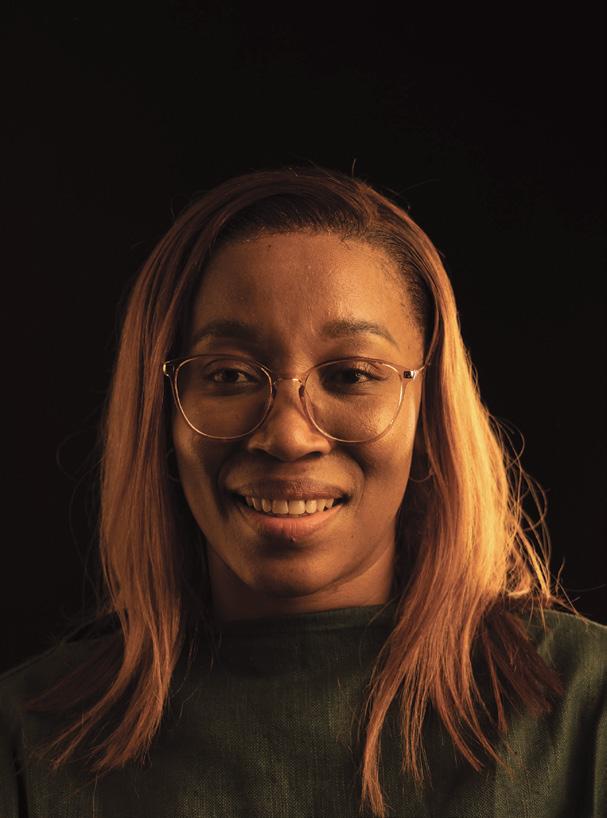
Dr Lesego Thomas, Maternal and Foetal Medicine
Dr Lesego Thomas is based between Steve Biko Academic Hospital in Pretoria – where she’s completing her fellowship in maternal and foetal medicine (MFM) under the University of Pretoria – and Life Peglare Hospital in Rustenburg, North West, where she serves as the lead obstetrician in private practice. “This dual setting allows me to merge tertiary-level academic expertise with real-world service delivery in a resourcelimited environment,” Dr Thomas explained. “My area of specialisation is maternal and foetal medicine, with a particular focus on high-risk obstetrics, hypertensive
disorders in pregnancy, foetal growth restriction, and the prevention of surgical site infections (SSI) following caesarean delivery. My research and clinical initiatives aim to improve maternal and neonatal outcomes through evidence-based care, innovation, and equitable access to subspecialist services in underserved regions.”
Deeply inspired by the resilience of mothers and the transformative power of safe pregnancy and childbirth, Dr Thomas explained that knowing that timely interventions and compassionate care can determine the difference between life and loss, motivates her daily. “As a medical professional, I am driven by the opportunity to bridge the gap between advanced foetal medicine and rural healthcare, ensuring that women in remote areas receive the same level of specialist care as those in urban centres.” Dr Thomas highlights the inequitable distribution of maternal-foetal medicine expertise across SA as one of the greatest challenges she faces. “In provinces like the North West, access to tertiarylevel diagnostics and subspecialty input is extremely limited. This results in delayed referrals, preventable complications, and poorer outcomes for mothers and babies. Resource constraints, understaffing, and limited diagnostic infrastructure further compound these challenges. Balancing academic, clinical, and administrative responsibilities while advocating for systemic change remains demanding but necessary.
“I applied for the Discovery Foundation
Gettyimages: Credit LaylaBird
“I’minspireddailyby theresilienceofpatients whofacecomplex,lifethreateningdiseases—and bythepossibilityofcure throughinnovationsuchas stemcelltransplantation," said Dr Vundla

Award to strengthen my academic and clinical development in maternal and foetal medicine and to expand subspecialist services within the North West Province. This funding supports my fellowship and research, enabling me to introduce structured foetal medicine services, capacity-building initiatives, and outreach programmes. Ultimately, it bridges a critical gap by allowing me to become the first foetal medicine specialist in the province, bringing advanced prenatal diagnostics and evidence-based interventions closer to communities that need them most.”
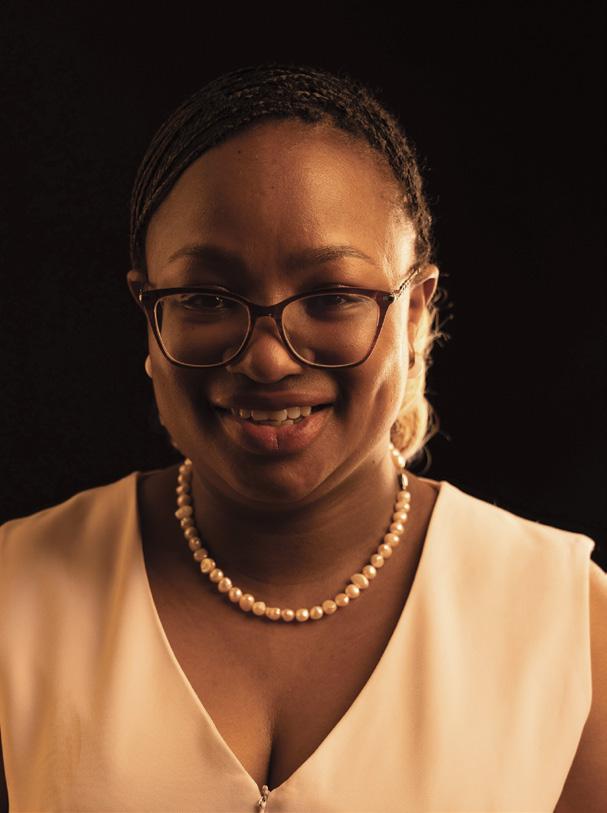
Dr Nokubonga Vundla, Clinical Haematology
Currently completing her clinical haematology fellowship at the University of Cape Town, Dr Nokubonga Vundla is based at Groote Schuur Hospital. “My area of specialisation is clinical haematology with a focus on haematological malignancies and stem cell transplants.”
Dr Vundla’s research focuses on bleeding disorders using the Western Cape REDCap registry, as well as health economics in immune thrombocytopenia (ITP), comparing partial splenic artery embolisation with splenectomy.
“Haematology sits at the intersection of science, humanity, and hope,” said Dr Vundla. “I’m inspired daily by the resilience of patients who face complex, life-threatening diseases — and by the possibility of cure through innovation such as stem cell transplantation. My vision is to establish a state-of-the-art transplant hospital in KwaZulu-Natal, thereby expanding access to advanced care for patients in SA’s eastern region.” Concerned about the shortage of trained clinical haematologists in SA, Dr Vundla explained that there are fewer than 30 specialists for a population that needs approximately 600 to meet WHO recommendations.
“This shortage limits access to diagnosis, treatment, and research infrastructure, particularly outside metropolitan areas."
Dr Vundla applied for the Discovery Foundation Award to advance her subspecialist training in clinical haematology and to contribute to national capacitybuilding in this field. “The award supports my academic and clinical development, allowing me to pursue research that addresses gaps in equitable access to haematology services.”
In the future, Dr Vundla hopes to see an integrated network of haematology services across SA, guided by local data, improved training capacity, and the establishment of transplant programmes beyond major cities. “My ultimate goal is for every patient, regardless of geography, to have access to world-class, life-saving care.”
ABOUT THE DISCOVERY FOUNDATION
Established in 2006, the Discovery Foundation is an independent trust that provides grants to healthcare professionals and institutions committed to advancing SA’s public healthcare system. The awards recognise and support excellence in medical training, research, and service delivery, with a focus on rural and underserved areas.
AWARD CATEGORIES
• Academic Fellowship Award: These awards aim to promote research-focused training in Academic Medicine and to develop more clinician scientists to benefit healthcare in South Africa. The recipients receive funding for postgraduate research.
• Sub-specialist Award: The Discovery Foundation Sub-specialist Awards aim to contribute to human resources for clinical and Academic Medicine by supporting further subspecialist training, research and development in health faculties in
South Africa.
• Healthcare in rural and underserved areas: Institutional Award – The Award supports improving the quality and delivery of healthcare through a oneyear grant to an institution for training and capacity development in rural and underserved areas.
• Healthcare in rural and underserved areas: Distinguished Visitor Award –Grants are provided to institutions that offer healthcare services to rural and underserved communities. Selected Clinicians provide guidance and mentorship.
For more information or application forms visit: https://www.discovery.co.za/corporate/discoveryfoundation-awards Closing date for healthcare grants in rural and underserved areas: 15 January 2026.
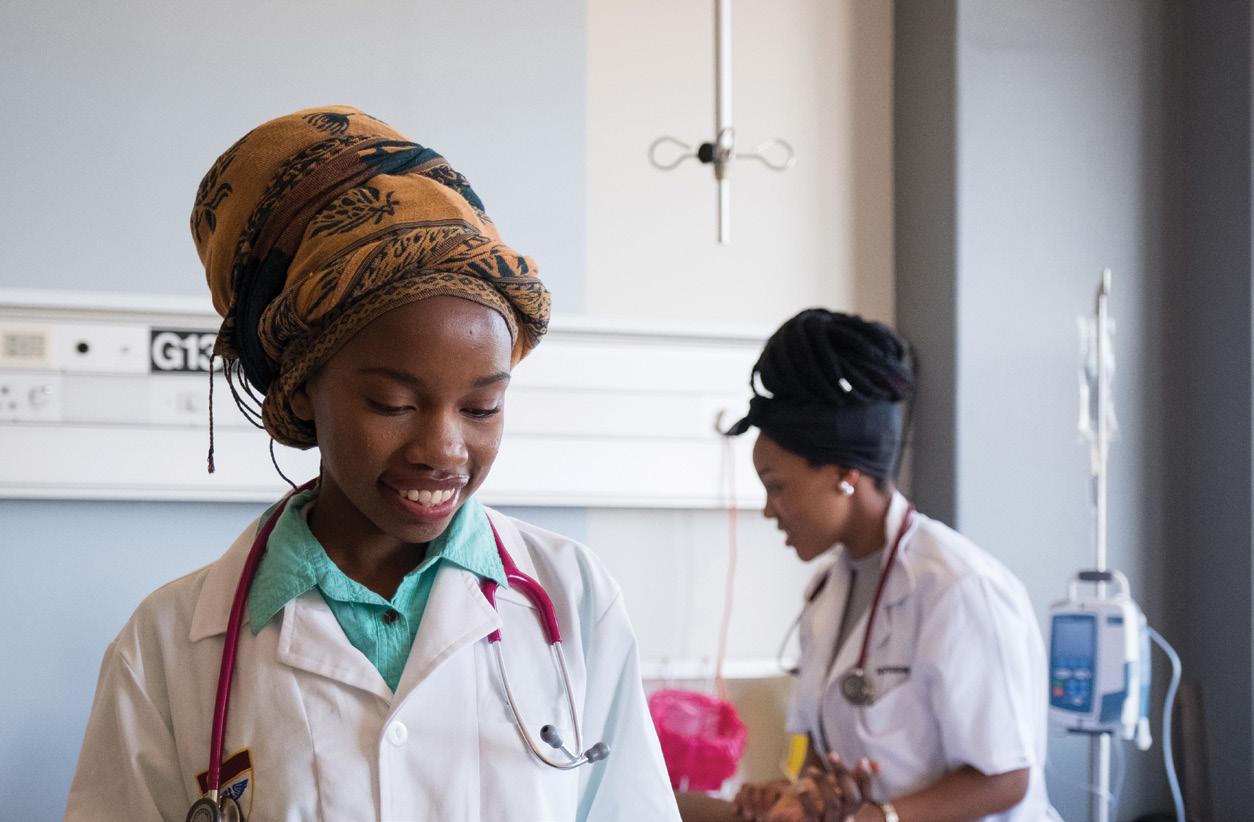
Gettyimages: Credit Cecilie_Arcurs
Gettyimages: Credit nattrass
